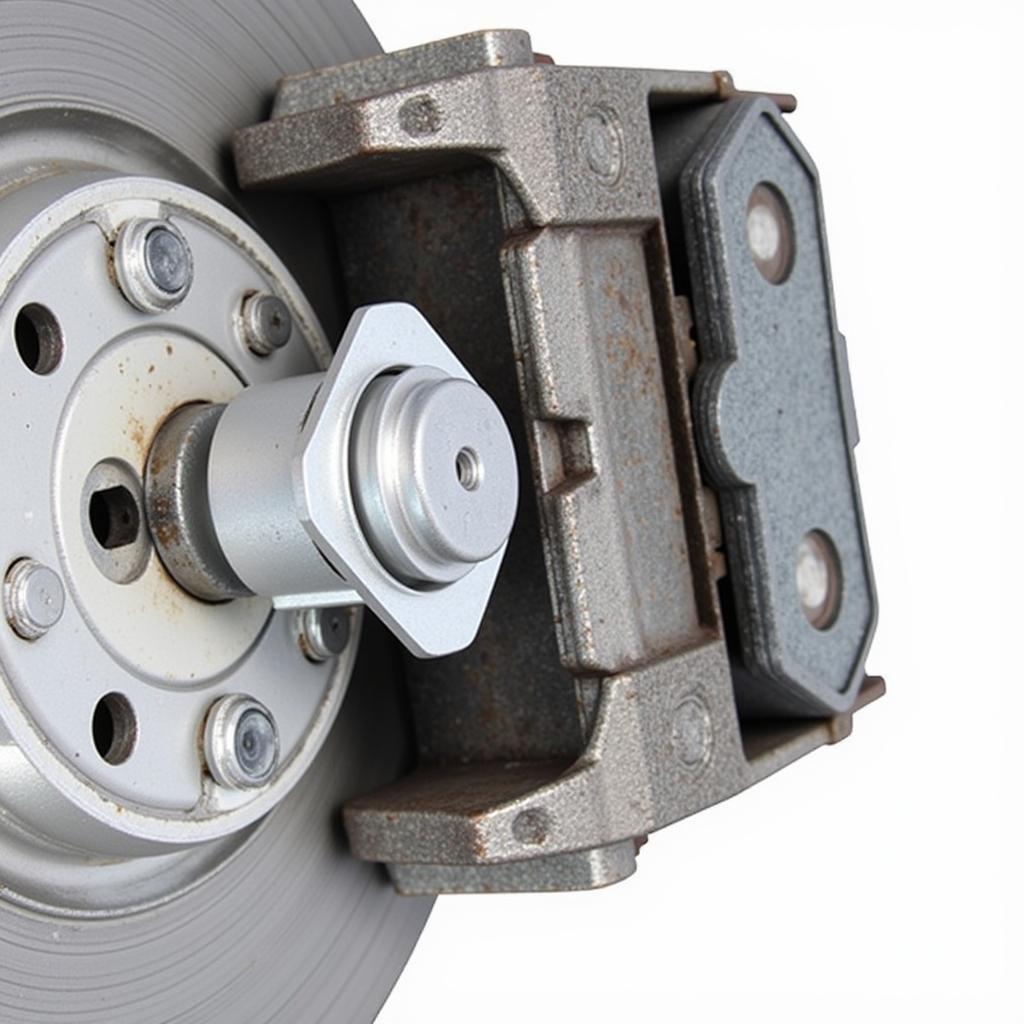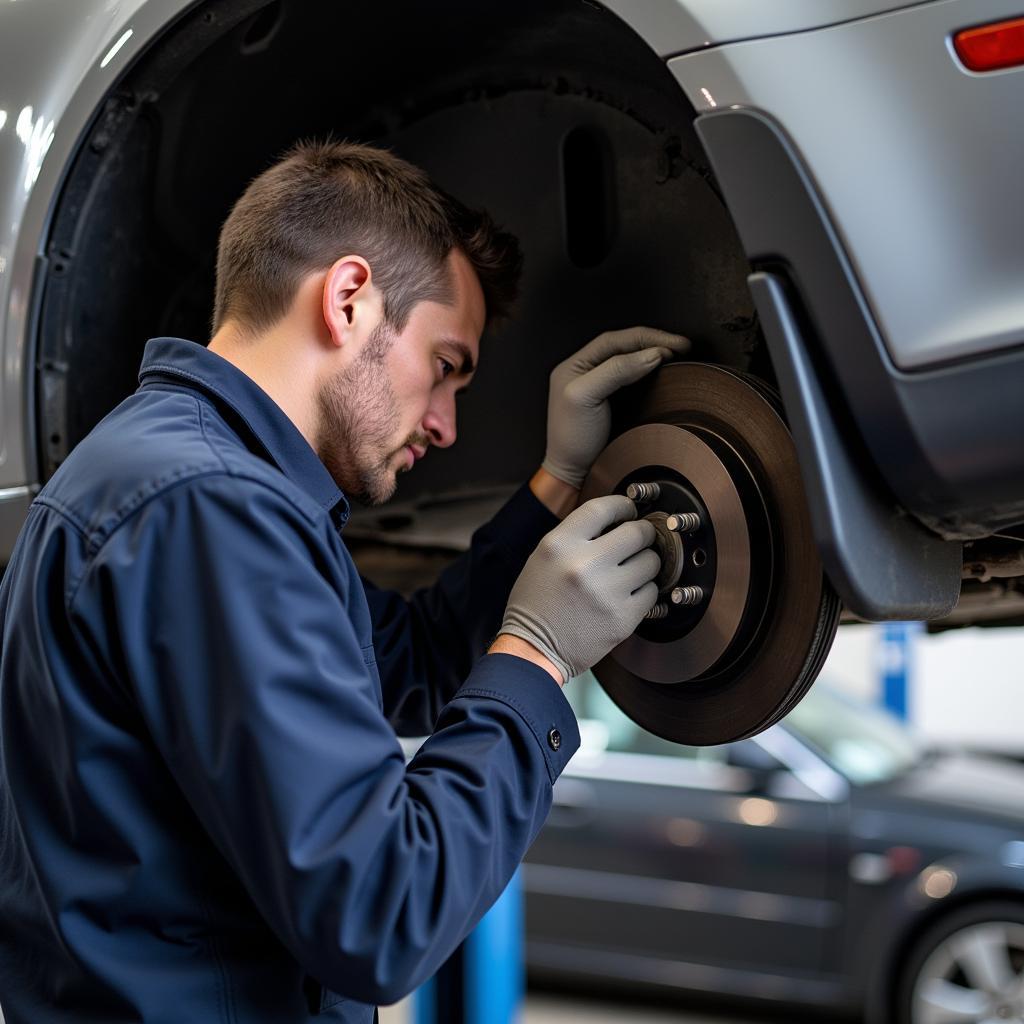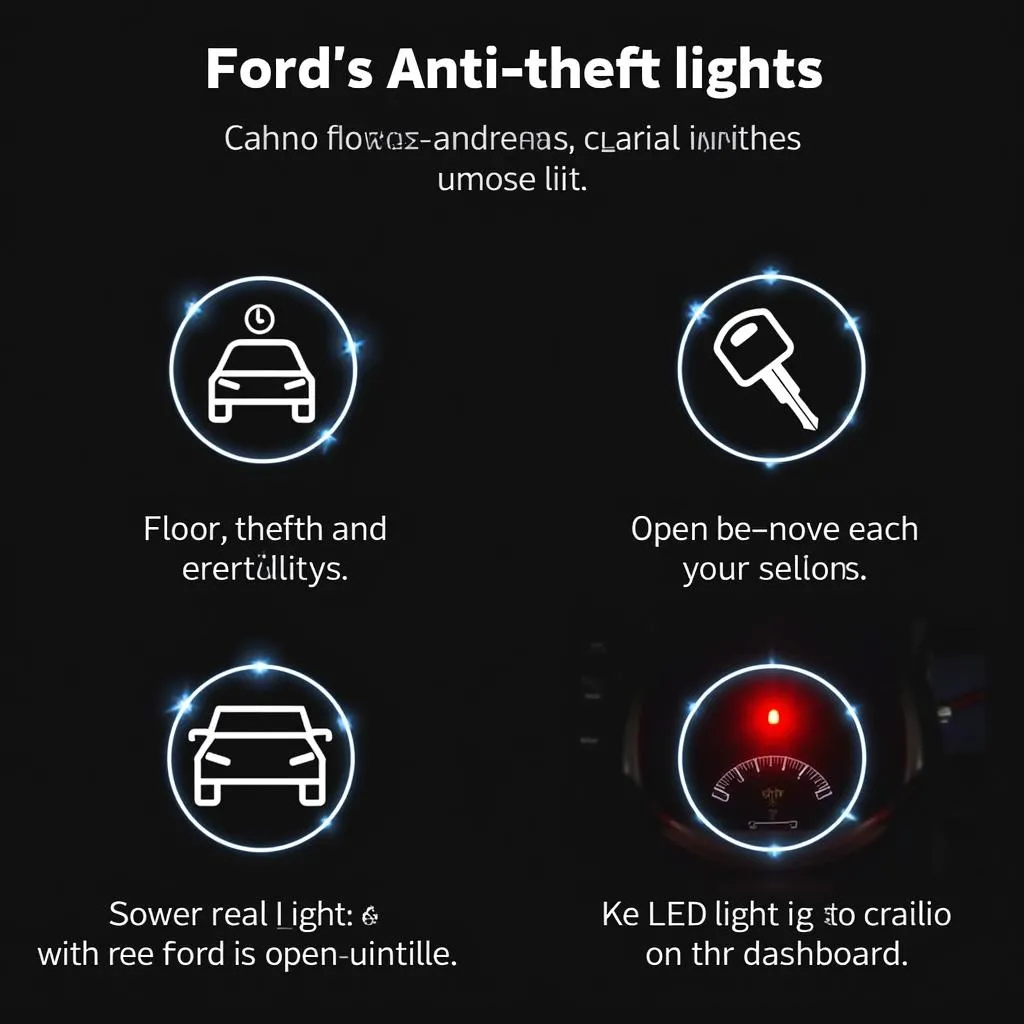Imagine cruising down the road in your 2007 Audi A4 when suddenly, a yellow or red light resembling an exclamation mark encircled by parentheses illuminates your dashboard. This is the dreaded brake pad warning light, and it signifies a potential issue with your braking system that needs immediate attention. This article delves into the common causes behind this warning light in a 2007 Audi A4 and provides potential solutions to get you back on the road safely.
Understanding the Brake Pad Warning Light
The brake pad warning light in your 2007 Audi A4 is designed to alert you when the brake pads are wearing thin and require replacement. Ignoring this warning can lead to severe consequences, including decreased braking performance and potential damage to the brake rotors.
Common Causes of the Warning Light
Worn Brake Pads
The most common culprit behind the brake pad warning light is, unsurprisingly, worn brake pads. Over time, the friction material on the brake pads wears down due to repeated braking. When the material reaches a certain minimum thickness, the brake pad wear sensor triggers the warning light.
Faulty Brake Pad Wear Sensor
While worn brake pads are the usual suspect, a faulty brake pad wear sensor can also trigger the warning light even if the pads are still in good condition. The sensor is a small wire embedded within the brake pad material that makes contact with the brake rotor when the pads are worn. A broken or damaged sensor can send a false signal to the car’s computer, illuminating the warning light prematurely.
 Brake Pad Wear Sensor on a 2007 Audi A4
Brake Pad Wear Sensor on a 2007 Audi A4
Low Brake Fluid Level
Though less common, a low brake fluid level can also activate the brake pad warning light in your 2007 Audi A4. Brake fluid plays a crucial role in transmitting the force from the brake pedal to the brake calipers, engaging the brake pads. If the fluid level drops below a certain point, it can trigger the warning light as a safety precaution.
“A low brake fluid level often indicates a leak within the braking system, which requires immediate professional attention,” advises Mark Stevenson, a seasoned automotive engineer specializing in European cars.
Diagnosing the Problem
When the brake pad warning light illuminates, it’s essential to diagnose the underlying cause promptly.
-
Inspect the Brake Pads: Visually examine the brake pads through the wheel spokes. If you notice the friction material is significantly thin or you can see the wear indicator touching the rotor, it’s time for a brake pad replacement.
-
Check the Brake Fluid Level: Locate the brake fluid reservoir under the hood and check the fluid level. If it’s below the minimum mark, there might be a leak in the system.
-
Consult a Mechanic: If you’re unsure about the diagnosis or uncomfortable working with brakes, it’s best to consult a qualified mechanic specializing in Audi vehicles. They have the expertise and tools to accurately diagnose and address the issue.
 Mechanic Inspecting Brakes on a 2007 Audi A4
Mechanic Inspecting Brakes on a 2007 Audi A4
Addressing the Warning Light
Replacing Brake Pads and Sensors
If the brake pads are worn, replace them along with the brake pad wear sensors. It’s recommended to replace both front and rear pads simultaneously, even if only one set is worn.
Repairing Brake Fluid Leaks
A low brake fluid level requires immediate attention. A professional mechanic should inspect the brake lines, calipers, and other components to identify and repair any leaks before refilling the brake fluid.
Ignoring the Warning: Risks and Consequences
Ignoring the brake pad warning light can lead to:
- Reduced Braking Efficiency: Worn brake pads compromise braking performance, increasing stopping distance and potentially leading to accidents.
- Damaged Brake Rotors: Driving with severely worn brake pads can damage the brake rotors, requiring costly repairs or replacements.
- Complete Brake Failure: In extreme cases, ignoring the warning can lead to complete brake failure, putting you and others at significant risk.
Conclusion
The brake pad warning light in your 2007 Audi A4 is a crucial safety feature. Addressing the issue promptly ensures optimal braking performance and keeps you safe on the road. If you’re unsure about diagnosing or fixing the problem yourself, consult a qualified mechanic specializing in Audi vehicles. Remember, timely maintenance is key to safe and enjoyable driving.


